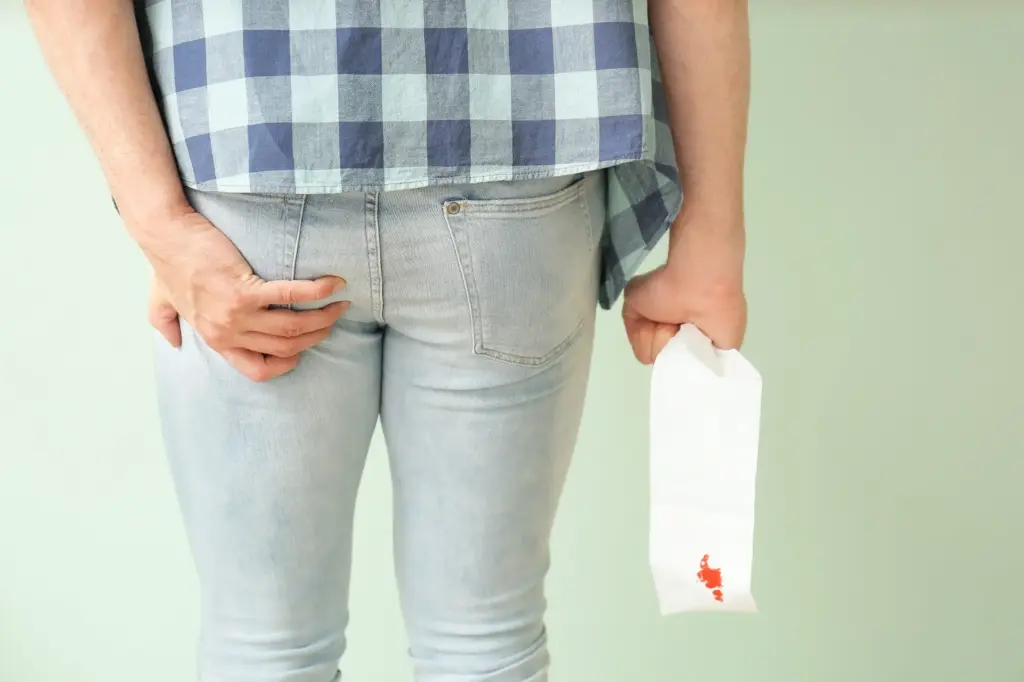
Understanding Rectal Bleeding (Bleeding from the Bottom): Causes, Symptoms, and Treatment
Rectal bleeding, often referred to as bleeding from the bottom, is a common yet concerning symptom that can affect individuals of all ages. While it may not always indicate a serious condition, it should never be ignored. At Chase Lodge Hospital, we understand how unsettling this experience can be, which is why we’re here to provide clarity and guidance on the causes, symptoms, and treatment options for rectal bleeding.
What is Rectal Bleeding?
Rectal bleeding refers to any instance of bleeding from the rectum or anus. This can manifest as blood in the stool, on toilet paper, or in the toilet bowl after a bowel movement. The colour of the blood can vary, ranging from bright red to dark maroon, depending on where the bleeding originates. While it can be alarming, rectal bleeding is often caused by relatively minor conditions. However, it can also be a sign of more serious health issues, making it essential to seek medical advice promptly.
Common Causes of Rectal Bleeding
There are several potential causes of rectal bleeding, ranging from benign to more serious conditions. Understanding these causes can help you identify when to seek medical attention:
- Haemorrhoids (Piles): One of the most common causes of rectal bleeding, haemorrhoids are swollen veins in the rectum or anus. They can bleed during bowel movements, especially if you strain or pass hard stools.
- Anal Fissures: These are small tears in the lining of the anus, often caused by constipation or passing large stools. They can cause pain and bleeding during bowel movements.
- Diverticulitis: This condition occurs when small pouches (diverticula) in the colon become inflamed or infected, leading to bleeding and abdominal pain.
- Inflammatory Bowel Disease (IBD): Conditions like Crohn’s disease and ulcerative colitis cause chronic inflammation in the digestive tract, which can result in rectal bleeding.
- Polyps: These are small growths in the colon that can bleed. While most polyps are benign, some can develop into colorectal cancer if left untreated.
- Colorectal Cancer: Although less common, rectal bleeding can be a symptom of colorectal cancer. Early detection is crucial for effective treatment.
- Rectal Bleeding During Pregnancy: Pregnant women may experience rectal bleeding due to haemorrhoids, which are common during pregnancy due to increased pressure on pelvic veins.
Symptoms Associated with Rectal Bleeding
Rectal bleeding is often accompanied by other symptoms, which can provide clues about the underlying cause. These symptoms may include:
- Bright red or dark blood in the stool, on toilet paper, or in the toilet bowl.
- Abdominal pain or cramping.
- Changes in bowel habits, such as diarrhoea or constipation.
- A feeling of incomplete bowel movements.
- Fatigue or weakness (in cases of significant blood loss).
If you experience any of these symptoms, it’s important to consult a healthcare professional for a thorough evaluation.

How to Stop Rectal Bleeding
While mild rectal bleeding may resolve on its own, there are steps you can take to manage the symptoms and prevent further irritation:
- Increase Fibre Intake: A high-fibre diet can soften stools and reduce straining during bowel movements.
- Stay Hydrated: Drinking plenty of water helps prevent constipation.
- Use Over-the-Counter Treatments: Creams and ointments can provide relief for haemorrhoids and anal fissures.
- Avoid Straining: Take your time during bowel movements and avoid excessive straining.
However, if the bleeding persists or is accompanied by severe pain, it’s crucial to seek medical advice.
Diagnosis and Treatment at Chase Lodge Hospital
At Chase Lodge Hospital, we offer comprehensive diagnostic services to identify the cause of rectal bleeding. Our experienced specialists may recommend one or more of the following tests:
- Physical Examination: A thorough assessment of your symptoms and medical history.
- Colonoscopy or Sigmoidoscopy: These procedures allow us to examine the inside of your colon and rectum for abnormalities.
- Stool Sample Analysis: To check for infections or other underlying conditions.
Once the cause is identified, we tailor a treatment plan to your specific needs. Treatment options may include:
- Medications: For conditions like haemorrhoids, anal fissures, or IBD.
- Lifestyle Changes: Dietary adjustments and increased physical activity to improve bowel health.
- Surgical Interventions: For conditions like polyps, diverticulitis, or colorectal cancer.
When to Seek Medical Help
Rectal bleeding should never be ignored, especially if:
- The bleeding is heavy or persistent.
- You experience severe pain or other alarming symptoms.
- You notice unexplained weight loss or fatigue.
- You are pregnant and experiencing rectal bleeding.
Early diagnosis and treatment can prevent complications and ensure the best possible outcome.
Conclusion
Rectal bleeding can be a distressing symptom, but understanding its causes and seeking timely medical advice can make all the difference. At Chase Lodge Hospital, we are committed to providing compassionate care and effective treatment for all our patients. If you or a loved one is experiencing rectal bleeding, don’t hesitate to reach out to our team of specialists.
For more information or to book an appointment, visit our website or contact us directly. Your health is our priority.
References
- NHS. “Bleeding from the bottom (rectal bleeding).” Available at: https://www.nhs.uk/conditions/bleeding-from-the-bottom-rectal-bleeding/